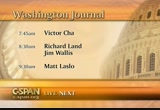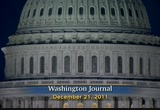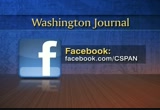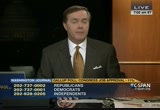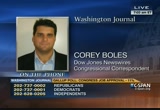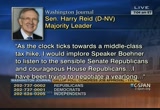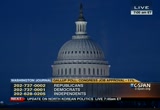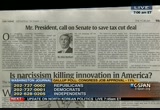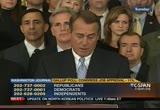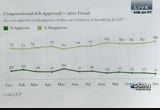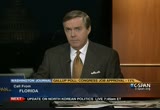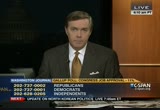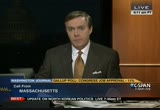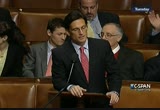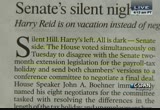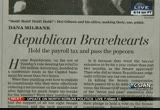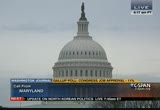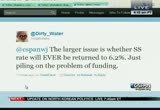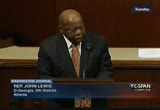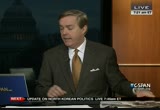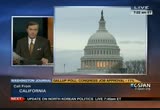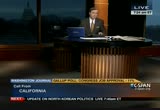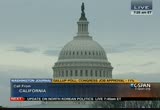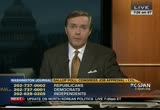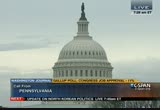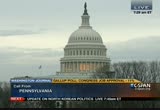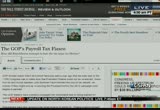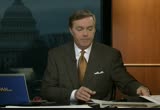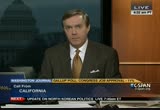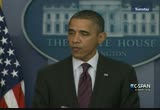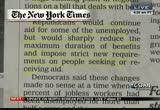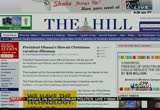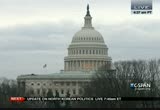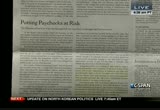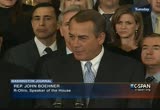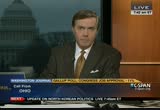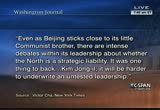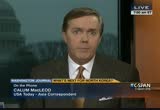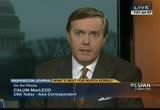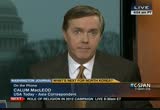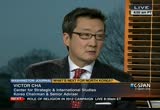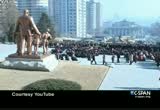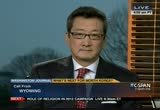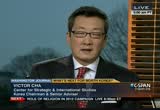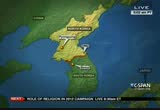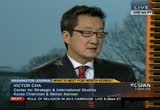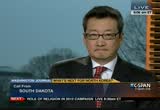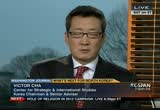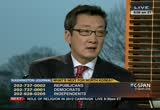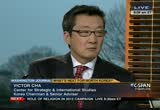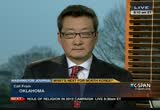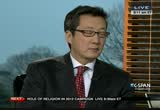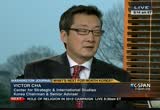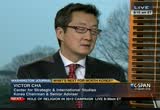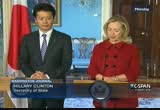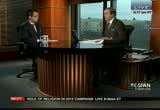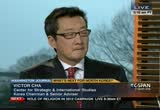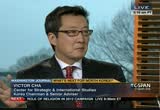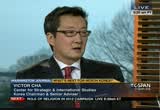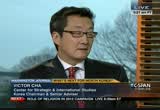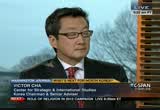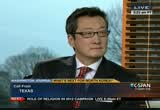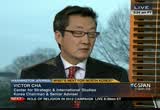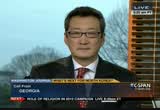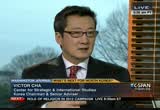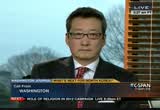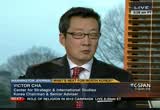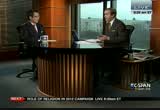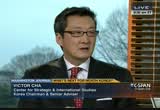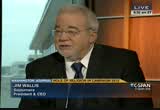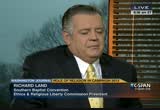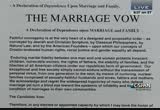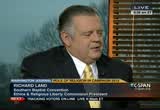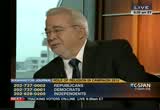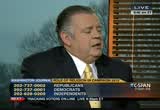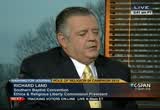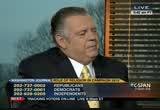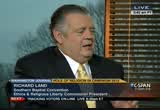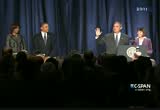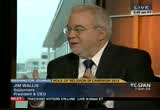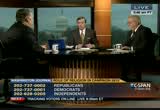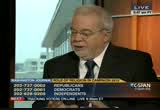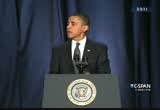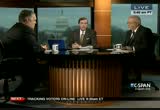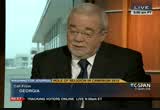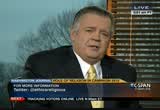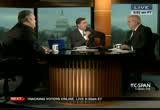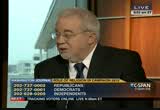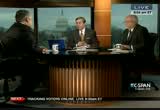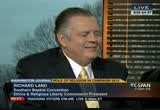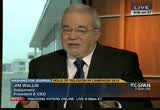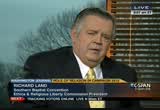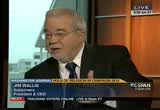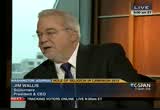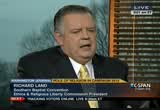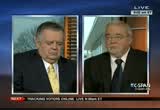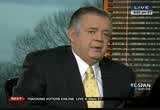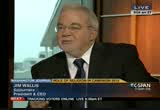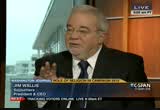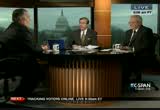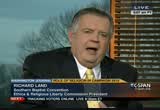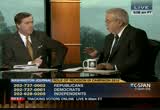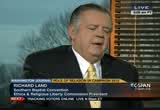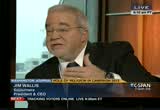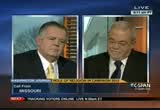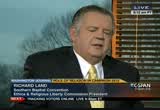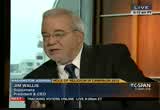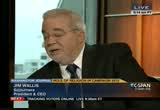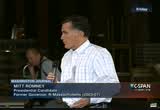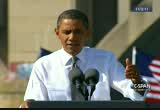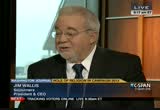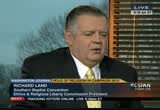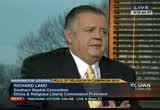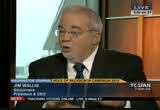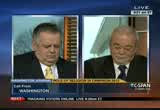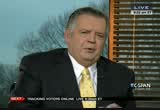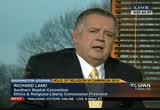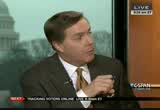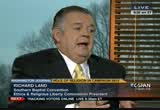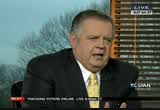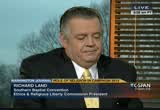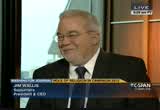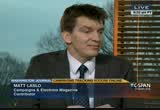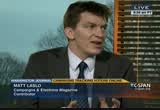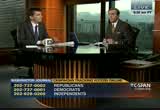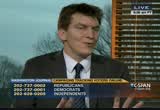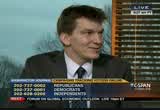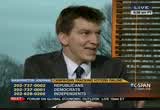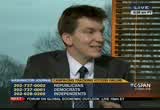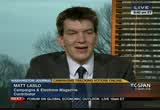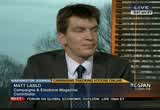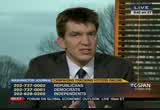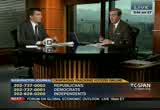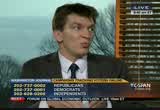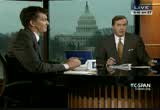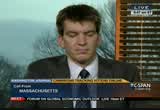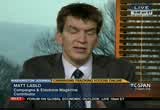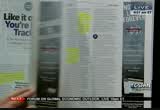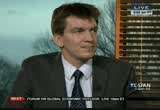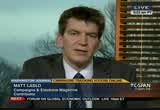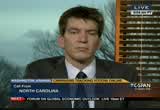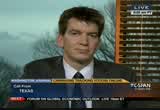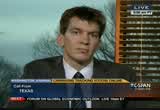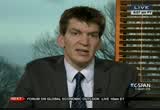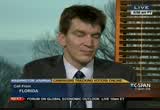tv Washington Journal CSPAN December 21, 2011 7:00am-10:00am EST
7:00 am
from the southern baptist convention and jim wallis, the president of sojourners. and we will adjoin buying matt laslo -- we will be joined by matt laslo talking about his article about how to attract voters online. "washington journal" is next. >> i am calling on the speaker and house republican leadership to bring up the senate bill for a vote. give the american people the assurance that they need for the season. >> president obama needs to call on democrats to go back into session and resolve this bill as quickly as possible. ♪ >> so -- host: so, the stalemate continues. the house of representatives is back in
7:01 am
. the standoff continues between congressional democrats and republicans and that congressional tax cut. the president remains in washington. it is not certain if he will stay for christmas or had to hawaii with his family. only 11% of the question -- of those questioned approved of what congress is doing, a new record low for gallup polls. you can give us a call, for republicans, 202-737-0002. for democrats, 202-737-0001. for independents, 202-628-0205. you can send us an e-mail, journal@c-span.org. join the conversation online at twitter.com/c-spanwj. or join us on facebook, facebook.com/c-span.
7:02 am
some of the headlines this morning, "the post," has " congressional impasse." "tax cut in limbo." "politico," puts it this way, "what now"? a poll was conducted earlier this month, released yesterday, giving congress and 11% approval rating. "11% of americans approving of the job congress is doing." the lowest in history. "a 17% yearly average for 2011, the lowest annual congressional approval rating in the history of gallup." you want to focus on the overall
7:03 am
assessment of the job congress is doing for the first 45 minutes. corey boles is keeping track of this for "dow jones newswires." good morning. we saw the vote yesterday on the house floor. a stalemate between congressional democrats and republicans. the president holding firm that he wants congress to pass the compromise that the senate voted on over the weekend. what happens next? caller: a very good question. with both the senate and house having departed for the christmas holidays -- holidays, they will have to call the leaders back to washington. asking them to take a vote, right now the senate is sticking to its position of a short-term extension of the payroll tax holiday as well, with federal
7:04 am
jobless payroll benefits. saying that they should sit down and strike a longer term. republicans said no, that you need to come back to washington and approve our short-term measure. so, we're waiting for one side or the other to break. i have been saying this all we, but the parties seem willing to let this tax cut expire under the economic conditions that exist in the u.s.. as i said this morning, it is hard to see how they do it in a way that is not completely going to allow them to save face. afterhere's a statement the meeting in the house.
7:05 am
"i would implore speaker boehner to listen to the -- host: he seems firmly entrenched in not calling back the senate before the new year. caller: you know that they seemed to issue their most adamant statements before a vote behind closed doors. we have seen disputes over funding the federal government for increasing the debt ceiling. or, indeed, extending federal funding to the federal emergency management agency. these bitter partisan deadlock over fiscal issues, invariably
7:06 am
one side of the other shows the willingness to cut a deal. the irony this time is that it is republicans pushing for a long term extension, ultimately, on their terms of this tax measure, when only a matter of weeks ago you had senior like eric cantor, saying he was not sure that this tax cut should be extended. in meetings with voters he'll kind of that there were more officials -- efficient ways to extend the measure. now it has become this knockdown battle. it will be interesting to see how it plays out. host: we are talking with corey boles about what to expect in the days ahead from the house. mr. president called on the senate to save the tax cut deal. the speaker sent a letter to the
7:07 am
president. this is part of what he had to say. host: we know that the house has eight people to negotiate in this conference committee. nothing yet from the conference -- senate side. where does that leave the house? caller: until harry reid agrees to -- if he agrees to a conference committee, there are no negotiations to be had. ultimately, speaker boehner has been saying that this is what we do in these positions. we have conference committees. there has been one conference committee over a spending bill.
7:08 am
it has hardly been the norm in recent months that this is how legislative disputes get voted out. inevitably, it has been a back door meeting between himself, harry reid, the president, perhaps. it is not like appointing conference committees has become the usual way of resolving these types of disputes. host: corey boles, thank you so much for adding your perspective to this news story. caller: no problem. host: a record low rating from the gallup organization, released yesterday, giving congress an overall 11% job approval rating. we want to get to your calls and comments in the scalpel. -- in this gallup poll.
7:09 am
karen, good morning. caller: the house needs to vote on this senate bill. it was an overwhelming majority of republicans and democrats that voted to extend this to iron out their differences. i am tired of the stalling tactics of the republican party. host: tom, jacksonville, florida. what is your take? caller: i was upset with john boehner yesterday for what appeared to be stalling. upon further review, i think he did the right thing. what did the senate actually do? 60 days? come on? the president needs to call harry reid and that group back to washington and tell them to do their job. no wonder congress has such a little approval rating. and they need to stop fighting and get something done for the people. harry reid and the president are
7:10 am
trying to get political capital out of this. i think it is going to backfire. host: jackie, democratic line, dallas, texas, good morning. caller: i think that the senate, doing what they are doing, the senate recently wanted the one year to have the tax cut extended. republicans did not want that. everything that the republicans asked for, the senate gave it to them. now it is boehner and the republicans who are saying that we need to come back and do our jobs. well, what good is it going to before a committee -- they had the super 8 committee and nothing could get resolved. they had the debt ceiling, nothing could be resolved. they wanted -- they want the president to say that that is what they said, and i do not blame the senate.
7:11 am
the democrats need to stand up. they have tried to work with republicans, work with republicans. now the republicans are in such hot water, they want to blame it on the democrats. host: the house puts the tax cut in limbo, the house floor yesterday entering to -- agreeing to enter negotiations. phil joins us on the republican line, from boston. caller: the tea party republicans are doing exactly what they were elected to do. they are the only people that are doing their job. they are the 11% approve people in congress. the other 89% of the old boys' club that need to change. we need term limits. since the mid-60's and the advent of the great society, we have elevated debt limit 70
7:12 am
times. the money is all gone, folks. things have to change and the tea party is leaving -- leading the way. host: thank you for the call. a tax showdown, obama blames the gop -- that is from "chicago sun-times." eric cantor and denny hoyer, yesterday, speaking. >> does the majority leader expect his members to go home this afternoon? >> i will respond to the gentleman. he has just sent an electronic notice to all members. the intention is for the conferees to do their work. we can iron out the differences. we can afford a year-long tax relief for the working people of this country. [applause]
7:13 am
>> i understand majority leader's position. he did not answer my question as to whether his members intend to go home this afternoon. >> i will say to the gentleman, it is very clear. i know that he is holding the same piece of paper that i am. the electronic message went to all members. the intention is for the conferees to go to work to iron out the differences that are narrow. host: some of the exchanges in the parliamentary process, back- and-forth, and we do know that lawmakers will have 24 hours notice on any scheduled votes, if and when that happens. editorial pages, beginning with "the washington times." "senate silent night." "silent hill, harry is left."
7:14 am
7:15 am
"staffers emerged to say that the meeting host: kathy is joining us. harvard springs, michigan. welcome to the conversation, calling on the democratic line. go ahead caller: i do not know if i heard you right, but harry reid has left town? if that is the case, anyone working in congress is completely unacceptable as a worker. what i cannot understand is that these people who have been on the job for decades cannot get work done in a timely manner.
7:16 am
i think that it calls for term limits. propelling people to get their job done as it should be. most americans do. get the american people stronger voice. as it is working right now, it just seems like we are grinding through the same thing, day to day, year after year. i live next door to a single parent and primary care giver who is working christmas day and christmas eve at walgreen's. that is pretty tough work. i expect congress to do the right thing for the american people and not go home until something is fast. host: thank you for the call. you can also join the conversation on line, journal@c- span.org -- twitter.com/c- spanwj. joseph ramirez, saying that
7:17 am
house republicans are the problem. "citizens united has made -- host: frank is joining us from germantown, maryland. good morning. caller: i am saying the you have got the democrat-controlled senate and the republican controlled house. they are both equal houses. those parties are trying to get the best deal that they can. the senate will not vote on the house bill. the house was not going to vote on the senate bill. the senate bill was being touted as being bipartisan, but it is not really because republican senators cannot vote against a tax decrease. they have to vote for it. but they know that house republicans will turn it down in mediation.
7:18 am
in the senate they're saying you have to take on this proposal. now we are in a deadlock where harry reid says he will not come to the table. the house is saying to come to the table and meet us halfway. i think that harry reid has backed himself into a corner, because he is saying that he will not negotiate. now he has to go back against his word or we are stuck until 2012. thank you. host: thank you for the call. all of this dating back to last year, when the president lower that payroll tax from 6.2% to 4.2%. of course, this is the money used to fund social security. jim has this point.
7:19 am
host: well, major garrett of "the national journal," has a piece online where he summarizes it five ways. first of all, asking the question "who blinks first"? "#3, more gimmicks." "house republicans and democrats fall prey to the gimmicks of using savings from overseas contingency operations. the rockets in afghanistan built into the budget baseline." "#4, house republicans give in." "#5, the house backs down as republicans caved entirely and passed to the extension next week's, the probable --
7:20 am
extension next week -- and pass the extension next week, the probable -- probability of that being 5%." good morning. caller: the e-mail the you just read about -- excuse me -- about it being a funding problem, i wanted to reiterate that it is not a funding problem, it is a spending problem. the legislation that congress has been passing with the national defense authorization act and patriot act that takes away our freedom, that is probably why the congressional approval rating is so low. host: thank you, richard. more from john lewis in atlanta, georgia. caller: what is happening here today is shameful, and a disgrace. it is unreal. it is unbelievable. we can do better.
7:21 am
if we fail today, how will you face your neighbor? your family? they are suffering. where is your compassion? where is your heart? where is your soul? host: that is some of the motion that was on the floor yesterday in advance of the house rejecting what the senate approved over the weekend. whether you want to describe it as limbo, a standoff, or stalemate, it continues on this wednesday just a couple of days before christmas. many of you are weighing in on our facebook page. "can we fire them all"? "who is that 11%, anyway? how can anyone be so foolish"? that is the gallup poll he is referring to, where 11% of people approve of the job congress is doing.
7:22 am
andy is joining us from san diego, independent line. good morning. caller: actually, i am a republican. if you include the senate as far as 11%, it is probably that low. i would like to remind listeners that the last election, republicans won big time in every area. primarily because mr. obama was on the ticket with them. i have so many thoughts about this, it is hard to put into words. i like the debate. i like that there are two parties in this country. i hope that the democrats stay in the senate. is aust like the president' week late, so is harry reid.
7:23 am
and again, we won the election. -- harry reid. again, we won the -- the election. i like the debate. thank you. host: this is from our twitter page -- host of democratic line. greg is on the phone. good morning to you -- host: democratic line. greg is on the phone. good morning to you. caller: the republican party has offered the oil pipeline and got that in there. now that they want to kill the legislation, how will they get that back in there? i think that they overshot their target and are looking for someone to blame. blame yourself. host: the story about the
7:24 am
pipeline in "politico, closed but there is a photograph of their of hannah -- political," there is a photograph of darryl hannah. an actress that brought media attention to what was then a little-known oil pipeline brought an energy issue up for republicans to use against the president. the issue culminated this month as they extended that payroll tax cut." you can read more on that story on politico.com. steve, good morning. caller: if you get a chance, pull up the wall -- "the wall street journal," op-ed about representatives. for all of us political junkies out there, i cannot think
7:25 am
congress enough for the best reality show on television that i saw yesterday. it was just amazing. it was the gift that i really wanted. i cannot thank them enough. the real problem is these gerrymandered districts. and in my case, the guy standing behind john boehner, kevin mccarthy, is the benefactor of -- they redrew the district's, and they are worse than they were before. that is the huge problem. they do not respect communities. they redraw these districts. they created a commission in california, because of the senses, of course, and we are worse off now. kevin mccarthy it's a solid district. -- gets a solid district. we, the people who want real representation, have our
7:26 am
communities bisected. if you look at bakersfield, there is this huge alleyway cut down the middle of it. one thing that needs to happen is a look at the way in which these districts were drawn if they were drawn to respect communities. like here in the central valley. they would cut across areas. bakersfield has democratic strongholds and republican strongholds. we would have much more mainstream, middle-of-the-road, more likely to compromise and work for the american people if they had to fight. think about this. kevin mccarthy is going to run unchallenged. his name will be on my ballot all by himself. i will not give anyone a choice. i want to thank you so much for the opportunity to talk to you today. host: we do have that editorial
7:27 am
that you referred to. are you still on the line? caller: yes. that is a fabulous -- you can read that to everyone. think about it. republicans have to think about the eviscerating of the gop in the house of representatives. every time i think about the people in the 23rd district, remember that kevin mccarthy is standing behind john boehner. host: thank you for the call. we will have more from " washington journal -- from " the washington journal." this is from "usa today." "restore the payroll tax, build the keystone pipeline."
7:28 am
next to that, this editorial cartoon courtesy of "the florida times union." it takes congress with an 8% job approval rating, and the rest of them saying they need to thank that a percent sign that still like them. than you see them ringing the bell for the insane asylum. only 11%, according to gallup, approving of the job congress is doing. paul is joining us on the republican line from pittsburgh. welcome to the program. caller: i sort of think that the low ratings are deserved by the republicans, the democrats, even the independence. all of them. -- independents. all of them.
7:29 am
the one thing that they failed to do, all year long, was cut spending. all you hear from any of them, all day long, is how we can spend more money. the money we will spend to extend this unemployment compensation and payroll tax deduction is money that will probably be borrowed from china. we are selling short the social security trust fund, the money that should be going in to them. the real failure is a failure on the part of our politicians to talk about the one thing that is killing this country. spending, spending, spending. the answer from the democrats? keep raising the taxes. we have developed this class war fort -- warfare led by the president. this is where we are at. 25 years from now, we will not be having this discussion about social security and medicare, because it will not exist.
7:30 am
host: thank you for the call. joan has this view from vermont. host: steve, from kentucky, saying that he has never seen such a result -- dysfunctional congress. and from edward winslow -- host: let me go back to the earlier caller from frazier, california, and that editorial from "the wall street journal." "the gop payroll tax fiasco."
7:31 am
"given how they have handled the tax debate, we wonder if -- if they might wind up reelecting a president before the campaign begins in earnest." one of the points from "the wall street journal," is that if the republicans did not want to face down on the merits, they should have come up with a strategy to defeat it with a y. in -- why. they should have agreed on a strategy that focused on policies to put mr. obama and democrats on the political spot." that editorial from "the wall street journal," is available online. the speaker of the house, yesterday, following the votes on the floor, had this to say.
7:32 am
>> i need a president to help out, right? [applause] host: in response to the president's statement from earlier in the day, he once the speaker to give the house a chance to pass the compromise. all of that, now, remains in limbo. martin, joining us from orange county, california. democratic line. good morning. caller: it really boils down to match mcconnell -- mitch mcconnell. he may well known that his one and only priority was to make sure that barack obama was a one-term president. how can anyone start out a relationship with two strikes on
7:33 am
them like that. they wonder why the democrats are having a problem finding reconciliation with these people. it is like they through the first gauntlet down and showed the president no respect these past few years. it is comical and embarrassing. i am a left-wing, caucasian democrat, and i tell you -- it is also -- almost like we are going back to birmingham. going back to the fire hoses. i do not understand. it is like this simple faction in the country once the civil war to be fought again. -- wants the civil war to be fought again. host: thank you for the call.
7:34 am
this is from "the pittsburgh post-gazette." "the house defeats payroll tax cut." "from the los angeles -- open -- from "the los angeles times," a similar above the line headline. this is what the president had to say. >> the clock is ticking. time is running out. if house republicans refused to vote for the senate bill, or even allow it to come up for a vote, taxes will go up in 11 days. today i saw that one of the house republicans referred to what they were doing as "high- stakes poker." he is right about the stakes. but this is not over. this is not a game. this should not be politics as usual. right now, the recovery is
7:35 am
fragile but moving in the right direction. our failure to do this can have an effect on families and the economy as a whole. it is not a game for the average family that does not have an extra $1,000 to lose. it is not a game for someone who is out there, work -- looking for work right now and might lose their house if unemployment insurance does not come through. host: some other related stories from "the new york times," "3 million could lose jobless pay."
7:36 am
host: the story this morning from inside of the a section of "the new york times." inside of "usa today," another point -- host: the other question with all of this is -- what is the president's schedule? "the hill," has the story with this headline -- "hawaii vacation decision is a dilemma." "the decision is not whether to compromise with republicans. the president's toughest call is whether or not to join his family for christmas in hawaii, or stay in lonely washington.
7:37 am
the white house will not say if he is headed west for the holidays, or even if he will make an abbreviated appearance. jay carney said that he had intended to stay with the american people." as congress gets 11% job approval rating, the lowest from the gallup approval organization, your thoughts? caller: i wish i could go one day without hearing someone talking about race. seems like there's always another race card. i do not think that the problem is districting or gerrymandering. the problem is that we have a bunch of attorneys. the problem -- we should start instituting term limits and iq tests. time to get normal people back in office. host: that was the republican line, eddie.
7:38 am
gary, texas, good morning. caller: how are you? host: very good. caller: this is why we need term limits. to get these people out of here. the president has the right and the authority to call back his staff to solve this. we have over one week and this is normal procedure. when the house wants one thing and the senate wants another, they go to conference. it is then up to the president. i voted for him last time. i am not happy with how he is handling this situation. thank you very much, steve. host: thank you for the call. this message from victor -- host: the editorial from "the new york times," "putting paychecks at risk."
7:39 am
host: yesterday, the speaker of the house described negotiations with the house and with the president. this is what he told reporters on capitol hill. >> we have been working for weeks. i will make it clear, i told the leaders of the senate that there would be no negotiations with the house until such time as the senate passed a bill. i meant what i said. when they were getting ready to pass this and someone passed on to me what they thought it would look like, i made it clear to
7:40 am
them at that point that i wasn't comfortable with where they're going. i express my displeasure. once again, taking the convenient route in not doing the people's work. host: from yesterday's afternoon -- from yesterday afternoon, politico wrote about leaving john boehner on a limb. "the speaker angrily demanded that the senate returned to the capital. left out, mitch mcconnell, the co-architect. it became a throbbing political headache for the speaker, who remained unusually silent as the particle -- partisan rancor and gridlock caused a year-end
7:41 am
headache. there has been an unusual amount of disunity and finger-pointing, both publicly and privately. -- privately." kathleen, good morning. caller: the congressional approval rating is up from 9%. they are up two points. here's the thing that really gets me. the american public is clearly disgusted with both parties. then the republicans, who have touted for years that they are all about tax cuts, here they will not approve or pass a tax cuts that benefits so many people. that contradiction is just so upsurged, i can barely stand it. i am in boehner's district, taking care of elderly parents.
7:42 am
the roads around here are in insanely bad shape. i wish the national media would come to his district more often. republicans, also unwilling to pass the consumer financial protection bureau. our representatives are supposed to be in their protection, like boehner said, doing the people's work. they should protect us from the 1% that clearly to the advantage of the regulations -- or the lack of regulations. there are so many serious contradictions. i wanted to ask you, yesterday, after i took my father to the va here in dayton, ohio, we rode back with a fellow who is a wheel chair-bound individual --
7:43 am
a fellow who is working for a transportation company. he had worked for general motors for years. he was laid off five years ago. he went from being laid off to making minimum-wage, and his job at general motors had been $35 per hour. host: so common. caller: i hope you focus more on the working poor in your stories. the capital gains tax, going down to 15% under bush -- maybe you already have a show focusing on how our representatives are passing capital gains reductions and taxes. host: thank you for the call. i hope you have a nice holiday. good luck taking care of your elderly parents. thank you. one other point about process in terms of what we can expect over
7:44 am
7:45 am
host: thank you very much for your calls, comments, e-mails, and twitter messages in this e- mail -- twitter messages. when we come back, the situation in north korea. and later, a round table on religion, american politics, and public policy. "washington journal," back in a moment. ♪ >> have you tried the free c- span radio app? here is what users are saying.
7:46 am
>> the audio quality is convincingly clear. an insanely great deal, considering it is also free. it took me about 10 seconds to learn how to use that -- use it. >> anytime, anywhere, get coverage of congress and coverage of c-span programs. and c-span, it is available wherever you are. find out more at c-span.org /radioapp. >> this weekend, three days of american history on c-span 3. saturday, visit the congressional cemetery on "american artifacts." then learn about american prosperity in the 50's and 60's. sunday, meet the white house chefs, dating back to the carter administration. then, highlights of coverage of
7:47 am
the attack on pearl harbor. experience american history tv, all weekend, every weekend, on c-span 3. >> middle school students, high school students, we want you to tell us what part of the constitution has meaning to you and why in this year's studentcam competition. there's a grand prize of $50,000 -- there's a grand prize of $5,000, and $50,000 in total prizes. for complete details, go online to studentcam.org. >> "washington journal" continues. host: we want to focus on the situation in north korea. victor, welcome back to "the washington journal." victor char has written a number
7:48 am
of pieces over the last couple of days on this topic. we will get to your comments in just a moment. we also want to welcome mr. mcleod, from south korea, was also covering the story. thank you for being with us. [no audio] host: we lost that phone connection. we apologize. we will try to reconnect in just a moment. the news came on sunday, the death of kim jong il. you wrote for "the new york times," "no. 3 as we know it is over. the regime will not be able to hold together after the untimely death of its leader. how america response will determine if the region moves towards stability or conflict." guest: well, steve, i think that as an analyst in korea for many
7:49 am
years and having served in government on the policy side, everything that i have read has said that the regime really stood on kim jong un hill for leadership. if they could live long, they could affect a successful transition process. the worst thing that could possibly happen would be the sudden death of a leader. i do not reach this conclusion with any amount of happiness or optimism. it is simply a logical extension of everything i have read about the regime. hosta we heard this morning about the great success: -- the .reat successor, kim jong oun but you wrote "there are intense debates within leadership about whether the north is a strategic liability. it will be harder to underwrite
7:50 am
an untested leadership." guest: right. since the first test in 2006, there has been intense debate in china about the degree to which china should stick with north korea. providing lots of aid and assistance with little hope of reform? or should they shed the strategic liability and work with other countries in the region? it continues to be a problem for it, even as the knee-jerk reaction is to show support for the regime in a difficult time. the natural status quo is to support something that they know as opposed to trying to address what they see as fundamental change. host: getting into north korea is difficult at best. callum mcleod is there and joining us from south korea this morning -- has been there and is joining us from south korea this
7:51 am
morning. what is the mood? what are you hearing about the funeral ceremonies in north korea and this transition of power taking place just to your north? caller: how can two neighbors of the same ethnic stock be so different? that is one of the most striking things to me. hear, the most wired place in the planet, people are getting on with the normal by some of capitalism and democracy. shopping for christmas, thinking about next year's elections, they are not talking about kim jong un. it is not dominating conversations. and host: in terms of the uncertainty that is presented in north korea, most recently we
7:52 am
saw the missile tests that took place after kim jong il had died, but after -- before they had announced his death? caller: i am sure that they will be focusing on the intelligence failure of two days before anyone knew about this. the kind of wait and see attitude will dominate here. the tension has ratcheted up. there is not much they can do. host: i want to read what our guest here in the studio wrote for "the financial times," and ask you to elaborate about a life in north korea. "economic decay, food shortages,
7:53 am
and an increasingly restless population, which could make the dear leader's death the straw that broke the camel's back." your assessment? caller: i have made different assessments in the past and spoken to many that have come over here. certainly, there is a frustration. the mechanisms of state control could really crumble whereby real change takes place. it is still incredibly militarize, supervised, and restricted as a population. given what they have suffered for so long, i doubt that there
7:54 am
will be any rapid change. the people who have been suffering for so long will not be able to change themselves. host: how long have you been in south korea? caller: since monday, since the announcement of his death. i came over in -- from beijing. host: and it is a sense of normalcy in the south korean capital? caller: they have put up with problems in the north for a long time. the people are not expecting great change from the third generation. host: we appreciate your perspective. thank you very much.
7:55 am
caller: you're welcome. host: victor char, we go back to your words about economic decay in north korea. the last sentence of that story that she wrote, "the straw that broke the camel's back." caller: -- guest: certainly, it makes sense. the average south korean has lots of other things to do. the activity inside of the government today is not so blase. whether it is south korea or the u.s. government, the sudden death of the north korean leader was sort of the key factor that could lead to problems within the regime. that is the way it has been believed for a decade or now. and in terms of the question of whether the regime can survive into the future, there are a couple of things that i remember. the first is that this young son that is supposed to take over,
7:56 am
kim jong un, has had at best 24 months to get ready for this job. his father took over from the first leader in 1994 after having prepared for nearly 20 years to take a position. he was basically running the country, day-to-day, when his father passed away. 20 years, less than 44 months. a big difference there. host: i have to ask you about the scenes of people whaling in the streets. the reporter announced the death of kim young ill over the weekend. those scenes, a genuine? or propaganda? caller: a little bit of both -- guest: a little bit of both. if the dear leader dies, crying is mandatory. on the other hand, some of it is
7:57 am
quite genuine. we have to remember that in north korea, there is no psychic space in the mind of the north koreans for anything other than devotion. after-school activities, exercises and dances in praise of the dear leader. writing literature is of it -- is writing about the dear leader. there is nothing else there. to have this taken away suddenly, it is certainly plausible that some people are quite grief-stricken. host: china, south korea, and japan. we will get to your phone calls in just a moment. you can send us an e-mail, give us a call, or join us on facebook. you wrote in "the financial
7:58 am
times," just last week that the u.s. was engaging in diplomacy with the north koreans. this diplomacy constituted small bites of the apple, but now we're talking about a whole new apple." guest: this administration is trying to get back to talks of denuclearization. that is when all of this happened. when they are right to do this, we are really faced with now is an entirely new type of problem in north korea. until the death of kim jong-il, it was all about denuclearization. but if we see signs of news reports that something is amiss, the dimensions of the problem changed completely. now we are dealing with the potential that the newest nuclear weapons state no longer has a leader.
7:59 am
host: victor char, a fellow at harvard and stanford, as well as a hoover national fellow, former national security council from 2004 to 2007 in the bush administration. rory is joining us. caller: i would like to ask your guest if, on any level, the south koreans have a vested interest in making sure that there's a strong man in north korea, as well as keeping the country's split up. the refugee problem that would ensue -- think about germany over the last 20 years with its financial burdens because they reunified after communism fell.
8:00 am
thank you. guest: it is a good question. i think every government, every society feels more comfortable with what they know. going down the unification tunnel, would be very scary, and as you say costly. at the same time, it is part of how they define their identity. the division of the peninsula in the history of korea is considered a historic collaboration, and that will end once in a vacation happens. there is this calculation that is difficult to fathom, having to deal with the absorption process. germany was a difficult transition, and career would be more difficult because economic gaps were wider. at the same time, i think many
8:01 am
ofeans see unity as part their future, and the death of kim jong il raises questions about whether the north koreans can hold it together. the south koreans might not have a choice if unification falls in their lap. host: our guest studied at oxford in england and has a new book called "north korea, the impossible state." guest: there is. worship, brief, joy, it is all mandatory. at the same time, if you could just a imagine, in a country where you have no religion, the
8:02 am
only faith that exists is for the leadership, and all of a sudden this is taken away, there has to be a void. there has to be people that have no idea what to do now that the standard and daily worship of the leader is gone. in almost any public space you enter, there are portraits of these two individuals. from an early age children are taught worship of these individuals is more important than even your own family. host: albuquerque, new mexico. john. democrats line. caller: this is one of the strangest phenomenon i've ever seen social logically. if you do not get out there and cry as much as your neighbor, your secret police will show up at your door. i am sure a lot of it is
8:03 am
genuine. this is a unitarian view of all their lives. what is your insight to the new leader? we saw some light shed with the envoy of better richardson and wills bluster -- governor richards and and will flexor. they seemed to like them in korea. would you be willing to go with an on boy over there, and what is your insight to the new leadership? host: thank you. we will get a response. guest: it is a good question. i traveled there when i was working at the white house as part of a mission to retrieve pow mia remains of soldiers that had died during the korean war. when the media goes there, the
8:04 am
north korean mobilize and present a particular picture of north korea to the media, one in which they try to give everyone the sense things are not as bad as everyone thinks they are, and we do not have horns on our head. but, i think the reality is that it is quite a decrepit society and many ways -- a society that has been caught in a bit of a time freeze, in the 1950's and 1960's. with regards to the new leader, kim jong un, we know very little about him, less than we knew about kim jong il or the first leader of north korea. we do not know his age. we know he is somewhere between 28 and 30 years old. he was promoted to the rank of four-star general when he has not served a day in the military. we know he has been anointed as
8:05 am
the successor to kim jong il, but we know nothing about his ideology or his world view. there have been some whitely- publicized reports that the young man has spent time outside of north korea, which is interesting. he studied in switzerland. it might effect his world view. the simple answer is that is quite extraordinary we do not know. host: in terms of the impact in the u.s., there are an estimated 28,500 troops currently stationed in south korea according to the state department, and one of our viewers has a question along those lines. guest: well, i think the u.s. military presence in korea has been about the north korean threat, but also about the u.s.
8:06 am
presence and influence in asia. removing the troops would make career and is totally responsible for their own military and deterrence capabilities. the south korean military is a modern and competent military that has served in a multi- nation peacekeeping missions around the world and done a fantastic job. right now, they do not have the full spectrum of capabilities to really have a credible deterrent. the u.s. and the south koreans have entered an agreement which is to eventually pass wartime operational control from the united states to south korea, but that process will take a couple of years. host: on our independent line. south dakota. good morning. caller: my questions might be out dated, or dumb, or
8:07 am
whatever, but why does everyone north korea, but i have never heard anyone in the past show compassion to north korea, south korea, and rejoined them. guest: thank you for the question. i am a professor at georgetown, so there is no such thing as a dumb question. with regards to compassion, secretary clinton, if the united states, has already made a statement of compassion for the north korean people, and a hope that in the future leadership will take the people in a better direction. the united states this week was in plans for offering food assistance before the death of kim jong il through everything up into the air. it has been u.s. policy for quite some time to try to help
8:08 am
the north korean people, and successive administrations going back over 20 years have tried to do that. the same thing for the south koreans. if there is no country that has a greater interest, and both the government and the public has the more than any other country to provide food, resettle defectors, reunite families that were divided during the korean war. they have tried to do this strongly over the past two decades. host: this comparison. guest: this is a good point. while many say there will be continuity in north korea, you cannot make a direct comparison between what happened in the air
8:09 am
of the spring and north korea. if we heard these breeziness -- these regimes are brittle. host: from the new york times yesterday -- host: can you elaborate? guest: one of the big question is going forward is what will be china's role in trying to prop up the north? there is no country that is a greater stake in keeping the peninsula divided than china. it has made a core strategic calculation that a unified korea as a military ally of the united states is not in china could go interest. they are doing everything in
8:10 am
their power to keep the regime in place and maintain the strategic buffer, as it has been historically refer to. as we go forward, the chinese have already made clear they support this leadership transition. they have made clear they welcome an early visit by the new leader of north korea to china, and presumably any aid and assistance they have been providing, which they do not report publicly, will be even greater in order to support this very difficult transition process. host: on the republican line. patrick, from oklahoma. good morning. caller: good morning. we are living in a new world, a new time, where everything is controlled by finances. with the way china has borrowed so much money from the united
8:11 am
states, i think it is underestimated how much they have loaned the united states. if north korea ever used warheads, i think china would crush north korea because the finances controlled china, the united states, and everything in this new world, the new time. let's face it, everything is controlled by finances and i think north korea needs china's help and the u.s. help, that is why the country is still starving. this younger son that is taken over, but i think he is a puppet. i think the military knows it is being controlled by finances. a --uld like to give your get your opinion. i do not think china will ever let north korea use a warhead. host: thank you. guest: thank you.
8:12 am
on the one hand i think that china exorcises a great deal of economic leverage over north korea. it certainly does not want to see north korea use a nuclear warhead. that is very clear. on the other hand, china does literally 100 times more business annually with south korea than a dozen north korea. yet, at the same time, it remains wedded to this broken down machine, throwing money down a black hole because there is no reform. they do this for strategic reasons, not economic reasons, and at the same time alienating the south koreans. host: in your book, you titled it "be impossible state." why?
8:13 am
guest: i teach international relations. this is an incredible country. the notion that a country like this after the end of the cold war, after the city to of the soviet union, after the care of the spring still manages to chug along, it is really an impossible story. i try to explain why we have ended up with a country as it is. basically anyone else who has looked like north korea has long since left history. i look for the history of the book. i take us through the nuclear issues, the leadership issues, and of course i will have to do a little bit of revising given the sudden -- sudden death of kim jong il, but i do believe for the united states, the next president is going to have to deal with the major crisis in north korea before he leaves
8:14 am
office. host: you refer to the sudden death of kim jong il. and your intelligence, you have no idea he was in such poor health? guest: he had a stroke in 2008. photos have him looking quite gaunt. the most interesting thing about the reports were that last week he was fully recovered, and in great health. to have this news comes out reinforces how little we know about this regime. host: this from twitter. guest: i think china has a great deal of influence, but at the same time it is in many ways held hostage because it does not want the regime to become destabilized. the north koreans know that.
8:15 am
did the chinese know about the nuclear tests during the bush and the obama administrations? i think the answer is now. -- no. the chinese yet feel obligated to support the system because they simply do not want to see the strategic collapse of their regime and lose their offer. host: with kim jong il's sa and in control, john has this -- what was the need to do to show he is or can take control of north korea? guest: i am not sure is a public displays. quite obviously he needs to consolidate his relationship with his military and key members of the party because the party and the military basically are the key foundations of the north korean state. where we would see this most likely from the outside world is
8:16 am
the propagation of the new ideology because the north korean state rests on ideology. since the last leader had an ideology that did not work, and i think most north koreans know that, i think that is what we would be looking for. it would be difficult to see from the inside was sort of relationships are being cultivated. host: i want you to parse the words of the secretary of state. she was joined on monday with the japanese foreign minister. it was said that event that the secretary of state issued this official statement following the death of kim jong l. >> today, the foreign minister and i discussed the evolving situation on the korean peninsula in light of their report on the death of kim jong il. we both share a common interest in a peaceful and stable
8:17 am
transition in north korea, as well as in insuring regional peace and stability. we have been in close touch with our partners in the six-party talks today. we reiterate our hope for improved relations with the people of north korea and remain deeply concerned about their well-being. host: read between the lines. what is she saying? guest: i think is a good statement. we have to say something, and do you offer condolences? for the united states, we are not in a position to do that given the fact and north korean leadership has created nuclear weapons, but going directly to the people and hoping for a better life for the people is really the right sort of angle to take. host: on c-span radio we posed
8:18 am
the question that in light of what we saw in germany in the 1980's, and this goes to whether or not we would see a unified peninsula, and richard brooks said it would be possible, but it would be decades. guest: it could be decades, or it could happen tomorrow. that is how wide the spectrum is. after the fall of the regimes in the arab spring, the experts could point to the indicators on why they fell -- use bulges, on an appointment, twitter, but no one could get predicted them -- unemployment, twitter, but no one could have predicted them. if the regime earth's falls tomorrow, we could -- if the regime falls tomorrow, we could say of course this would happen.
8:19 am
host: "the financial times" this morning -- host: there is a comparison between the south and the north. if you look at the various factors like the power, or the steel production, 1.3 million, as opposed to more than 53 million in south korea. construction is minimal in north korea compared to soccer career. a snapshot of life in these two countries. guest: these are two completely different countries. when i had to go to north korea to negotiate the return of thesepow mia remains, when i was coming back, you see the
8:20 am
skyline of south korea which looks like manhattan, and compared to north korea, it is so different. it is all about politics. host: let me show these two pictures courtesy of "the financial times." you see a woman on a field, and a south korean woman talking on her cell phone. guest: these countries started out on the same base. the north was a little ahead because of the japanese occupation. the two countries have gone in completely different directions. north korea is an economically depressed -- decrepit country. it is one of the only modern societies to of suffered a fathom -- phantom.
8:21 am
in south korea, a we have the most wired country in the world. it is just an incredibly different story. host: our guest is victor cha who has written a number of editorials including this from "the financial times." guest: i think this is a big challenge. it is truly a big challenge, and will be a test of how well the north korean state can hold itself together under dire conditions. in 1994 they went through the same problem because the leader
8:22 am
of north korea died, and many people did not think they could effect a transition then, but i would argue the situation today is much worse than it was in 1994. maybe not in terms of food, but north korean society is very different. it is much more penetrated by the outside world. he is because of kim jong il that the economy was running into the ground. they have a ration system. the people have to fend for themselves. they started creating markets. a market mentality is an independently minded mentality. this has been a process going on for 20 years, and we do not know how or when it will show itself, but this combination of a society moving in a direction of the more independently minded and an unstable, on certain leadership -- this is a
8:23 am
combustible combination. host: our guest is associated with csis, teaches at georgetown university, and the author of a new book. rob. austin, texas. caller: i have enjoyed what you said, and i am surprised they let me on this show, especially this war mayid think, being sarcastic. why can't we all get along? ibm a realist. -- i am a realist. i am a real, old texan. [unintelligible] things tear us apart.
8:24 am
host: on the point of getting along, specifically with u.s. and china relations, can you elaborate? guest: this is an important issue for the united states and china. there are many things we do not agree on -- taiwan, how much the currency should be valued, human-rights in china, but this is one thing the u.s. and china to agree on. which do not want nuclear weapons in north korea, and we do not want to see the north koreans continue in their stride for nuclear weapons. this is something on which the united states and china can cooperate. it is important that they share information. i think it is an opportunity for u.s.-china relations even though it is also a challenge. host: this from one of our viewers
8:25 am
host: where does technology come from? guest: where talk about the nuclear program, a lot of it does come from china, but there have been dealing with pakistan, iran, libya, in terms of their missile programs. host: randall joins us on the republican line from georgia. good morning. caller: [unintelligible] that is a line from a poem. when i was korea, [unintelligible] the people there were willing to get back together as one korea.
8:26 am
they had a lot of family in north korea. i never saw such a desire. it was like in the united states when we had the war between the states. this is one thing is i think the united states ought to realize and work for, the unification of the peninsula. guest: well, in a joint statement between president obama and the president of south korea, the united states said very clearly that it's hope was for a unified peninsula on. that was at peace. i think the policy is based support the aspirations for unity, but this is a challenging task, and one in which you have to manage strong relations with the south koreans, and outreach
8:27 am
with china. china is the only country with highs on the ground in north korea. they will have a good sense of what we will see coming in the future. we are going through this to the ruble-week -- two-week morning which will end with the actual funeral for kim jong il. it is from that point on that we will be looking for signals to understand what is going on in terms of this transition. it is very important for the u.s., south korea, and china, to coordinate information so we are operating from the same basis. host: bill, democrats line. seattle, washington with victor cha. good morning. caller: i am a little bit confused. i felt that china has to be just as nervous about north korea as anyone else.
8:28 am
it is not a state they could really control. and when wikileaks came out, one of the things that was revealed was supposedly elements of the chinese government would not be opposed to military intervention as long as there were not u.s. troops on their border. at what point with the chinese figure of this is not tolerable and go in there and clean it up themselves? guest: i cannot comment on wikileaks, but when the president of south korea went to number 3 in 2000, he came back saying the same thing -- went to north korea in 2000, he came back saying the same thing, kim jong il said u.s. presence after unification would not be a bad thing because 3 a is a -- career is a small thing -- korea is a
8:29 am
small place. from a basic international relations perspective that makes sense, but as the caller mentioned, i did not think the chinese feel comfortable that the united states is going to say yes, we will stay away from the caribbean hinson the -- the korean peninsula. we are connected to that region for peacekeeping in afghanistan cannot or lebanon. the koreans have always been there. what we say on paper is different from the real geopolitics of the region. host: you have been outlining the political, military, and diplomatic relationships, but let me go back to life in north korea.
8:30 am
for the time you have been there, could you give us a sense of what it is like for the average north korean? what a day is like, what their routine as like, how the information, what they eat, and how they live? guest: there are two north koreas. there is a town known -- pyongyang, which is more where the elites are, but daffy -- if you look closely you see lines of people waiting at their pay phone to make their call for the day. bus systems them a collector from the 1950's. storefronts better empty. -- that are empty. if you turn on the television, there are only two channels.
8:31 am
there is no c-span. outside of pyongyang, there is no heating, no clean water. host: the victor cha of csis and out with a new book -- "north korea, and impossible state" thank you for being with us. guest: always a pleasure, steve. host: we will turn our attention to politics. richard land and jim wallis will be joining us capital-letter, we'll be talking about campaigns -- joining us. we will be talking about campaigns and elections later. first, nancy callow. >> in an op-ed in "usa today" house speaker john boehner says the house has voted to begin a
8:32 am
committee to resolve the differences between the house and senate bills, and there is nothing unusual about this. this is the system our founders gave us. mike allen of politico reports that speaker john boehner republican house leader, and gop leaders are expected to meet this morning. meanwhile, "the washington post" says the senate vows not to return, and president obama is home at the white house while his family vacations in hawaii yesterday -- hawaii. yesterday, the president attended a ceremony marking the end of the iraq war, but u.s. general bond chemo is asking for the delay of a camp home to iran and exiles. the iraqi-led government wants
8:33 am
to close the camp, but the prime minister is negotiating with the u.n. a spacecraft has just blasted off for the international space station. those are some of the latest headlines on c-span radio. >> have you tried the free c- span radio app? >> it is fast, easy to use, and convincingly clear. awesome application. it took me about 10 seconds to learn how to use it. >> anytime, anywhere, get streaming audio of c-span radio, as well as all three television networks including live coverage of congress, or our interview programs including "q&a." c-span, it is available wherever you are. >> this weekend, three days of
8:34 am
american history television. on c-span 3, this is the congressional cemetery on "american artifacts." added o'clock, a university of colorado professor of american prosperity in the 1950's and 1960's. sunday evening, meet the white house chefs dating back to the carter administration, and monday, highlights of the c-span coverage of the seven is anniversary of the attack on pearl harbor. -- 70th anniversary of the attack on pearl harbor. experience american history television all weekend every weekend on c-span 3. "washington journal" continues. host: we want to welcome richard land with the southern baptist convention and the president of the ethics and religious liberty commission, and jim wallis, the president of sojourners.
8:35 am
i want to put on the table today's "washington times ca." richard land, in the iowa caucus the evangelical vote is a significant part of the republican electorate. >> about 60% they say of the voters are evangelicals, and as last time, they seem to be somewhat divided. in 2008 they split their vote among four or five candidates, and this time it looks like some will vote for gingrich, some will vote for michele bachmann, some will go for rick perry, some will vote for rick santorum. host: will this make a difference? guest: i am try to understand how family values for evangelicals in iowa, who care about role models, how they're
8:36 am
being attracted to newt gingrich. i am wrestling with that. host: how would you answer that? guest: i am evangelical, and it is not just third marriage. it is behavior. when you are having an affair, it means you are lying to the most important people around you, and i think that is a problem. for john edwards, or four newt gingrich. evangelicals christians drawn to newt gingrich troubles me to be honest. guest: they have the same problems that evangelicals who supported bill clinton had. all i can say is i have talked to a lot of evangelicals, and a lot of them do have problems, but you have to understand that forgiveness, redemption, second and third chances are part of the theological dna of
8:37 am
evangelicals. when he says i am sorry, i have learned lessons from my past, and i am now committed to my wife, my church, my children and my grandchildren, they give him a break. i will tell you this. there is a gender gap. i've done a couple of hundred focus groups with the southern baptist because they ask me everywhere i go about newt gingrich, and i find that evangelical men tend to be more forgiving than evangelical women. i think evangelical women want to hear more of what john mccain said. john mccain cemented his support among evangelicals when he said the failure of my first marriage was the biggest regret of my life, and it was my fault host: this is from "the family leader." it is the marriage vow.
8:38 am
it reads among other items, pledging fidelity to my spells, respect to the marital vows of others, and fidelity to the united states constitution. what role does this type of pledge have in american politics? guest: it seems to go all over the place from judicial philosophy, to economic philosophy. citing pledges probably is not something that makes a lot of sense to me. there is not a separation between the personal and the public, like many people want to do. someone's personal life and choices does say a lot about their public leadership. so, i think integrity and one's personal life and relationships connected. guest: harry truman cut to the bottom line. he said in the 1930's "i would
8:39 am
never knowingly hire someone to work for me that cheated on his wife." when he was asked why, he said if he would lie to his wife, he would lie to me. you cannot separate public morality and private morality. a lot of people try. a lot of people tried to do it when bill clinton was the object, and some have tried now with newt gingrich. a lot of americans say this is not right. the way a person de -- de haze in private tells a lot about how they will behave in public. guest: i am concerned that people that were unforgiving of bill clinton, and then just give newt gingrich a test. i do not hear the kind of deep lament and repentance in some of the apologists, "well, i was so
8:40 am
patriotic, working all the time, and that caused me to fail." host: let me point of that it was speaker gingrich's house that called for the impeachment. is there hypocrisy? guest: hypocrisy on steroids. a great deal of hypocrisy. i think people have to struggle with this. ford newt gingrich comac if he asks us to forgive him is a no- -- -- for giving newt gingrich, if he asks us to forgive him, is a no-bring your parents the issue is -- is a no-brainer. the issue is do you want to trust someone who has that test with the presidency? and a neutral observer would say that one reason newt gingrich has not done better than he has
8:41 am
done in the polls is because of the train of moral baggage he carries behind him. it's so let's look at american politics and put it in context of the chamber. the king at the breakdown of house and senate members, in the u.s. how -- house of representatives, there are 10 members of the mormon faith, one of the 32 members that are catholic, three buddhist, and 27 members of the jewish faith, and 13 describe themselves as others. in the senator, there are five members of the mormon faith, 56 members are protestant, 26 members are catholic, 12 are jewish, 3 listed as other. your general thoughts? guest: it sounds a lot like the democratic description of the united states, which it should
8:42 am
give the democratic -- the demographic description of the united states, which it should. it sounds like the demographics of the country. we are a country that is majority protestant, but have a significant catholic minority, and significant numbers of jews and mormons, and muslims, and people that are not anything. that sounds like a representative house of representatives. guest: i think we would agree that religion does not matter in the sense there is no religious test for office, but character does. we are talking about what is the character of those running for office. there ought not to be a religious litmus test, but character matters. guest: martin luther said "i would rather be governed by a
8:43 am
competent turk, which was a moslem, than an incompetent christian." guest: i would like to hear comments on that from all candidates. he said competence -- he did not say i want to be led by someone of my faith if they are not any good at it. host: what is your message in your book? guest: to conservatives, i say that their mistake is they assume god is on their side, and you cannot do that. he left to do your best to be on got's side the liberals assumed that god does not have a side.
8:44 am
i might be willing to with knowledge that god does not have this side when it comes to payments or trade policy, but when it comes to life and marriage issues got is pro-life, and pro-marriage. guest: my book makes a simpler point. i think both sides get it wrong when it comes to religious and politics. host: is the president a strong religious person? guest: i have an advantage of knowing him before he was there. he had an adult conversion. he became a christian in his adult life, and we used to talk about faith a lot. i know he is a committed christian with a personal faith that we used to talk about all the time back when he was not thinking about being president. at least he was not running.
8:45 am
host: yet these are official figures that since he has been in the white house, he has attended only nine official church services on sunday. does that matter? guest: my view is that it is better if they go to church and have a church family. i've said to the president and the white house and would be better if he went to church on sunday. he does some time, but ronald reagan did not go either, and evangelicals liked him. they say that it is very disruptive to a church, clearly, for a president to go to a church. it costs $100,000 in security. that is what i am told. i do not know the facts, but that is what they say. they also say that when he goes to church people are in line
8:46 am
around the corner, and the pastor does not feel like it is a private affair. there are logistical issues, disruptive issues, security issues. all of that is true. at the end of the day, i would like to see him have a home base, home church. he went last sunday, or the sunday before. he is been to some of the churches around town. i have passed their friends that had some -- pastor friends that new he was coming and have some pressure. host: we appreciate your participation. you can send us an e-mail, we join us on line on our facebook page, our twitter page, or give us a phone call.
8:47 am
host: richard land, did you want to follow up? guest: if a person is a professing christian, they ought to practice their faith. i think there are ways around the logistics' issue, and lincoln used to go, and sit in the study, and he could hear the sermon, but no one could see him. i understand the president does have worship services at camp david. i would prefer to see the president going to church, but i do not think it should be a test for office. the constitution says it should not be a test and i agree. if the person is a professing christian and is the president, they ought to be going to church. guest: the president gets
8:48 am
morning and daily reflections from one of the best pastors in the country. so, every day, there are serious morning reflections and prayer offered. so, the president does practices faith in a number of ways in a personal way, but a regular church home has not been his practice so far, and a lot of people would like to see that, but do believe nonetheless this personal faith is very real. host: one of the foundations of the constitution, separation of church and state, yet every winter and spring the national prayer breakfast takes place. is that appropriate? guest: i have often gone. i do not see a problem with them. i think the president would be invited no matter what his fate was, and if we had a present that was not a believer, i think
8:49 am
he would be invited still. this is a national event, and it could be taken in a broader context. there is a civil religion, and that as bad and good to it. there should be no religious test. people of different faiths have been president. i think richard android both believe that a nonbeliever ought to be present, but we doubt one would be collected. -- elected. guest: this is a voluntary prayer breakfast. it would be inappropriate if it was sponsored or required by the government. there is no violation of separation of church and state terror -- state. he chooses to go. host: savannah, georgia,
8:50 am
republican line with richard land and jim wallis. welcome to the program. caller: thank you and good morning, and thank you for having victor cha on. i would like to frame my comments and questions with a quote about gondi. he says "your christ i like, you're christians i do not like ." i use that as a reminder to consciously live what i believe. when we talk about the role of religion in politics, maybe we can extend the discussion to race relations. a couple of weeks ago, there was a call from a 91-year-old woman who was a christian and talk about her support for newt gingrich, and that the end of her comment she said a
8:51 am
shockingly racist statement. why do christians seem to have a lack of consciousness about being bigoted? what could pastors or people to to have a greater conflation of our christian beliefs with our day-to-day attitudes and behaviors? guest: one of the things people always say is the reason the apostle paul and peter had success is there were not a bunch of christians around to when the message before they got to preach it. no christian is perfect. we do not ask you to worship us. jesus is perfect. we are imperfect. you will find fault with us. racism is evidently part of the folly of human beings. we of had to fight it since the beginning of time.
8:52 am
in the new testament the jews did not want to except a gentile christians. we have had it ever since. we have made remarkable progress in this country up to and including the election of an african-american president, something all americans should be proud of. racism is alive and well in our country, and we need to make it very clear that it is totally and utterly inconsistent with the christian faith. if you are going to be a christian, god is no respecter of persons. black, white, yellow, brown, you are all equal. we should treat everyone equally, but we have to consistently, that it because it is evidently an inherent part of the fallen nature of human beings that they think better of themselves and they ought to think, and less of others and
8:53 am
they should. host: how would you define the term secular? guest: let me respond to that. your comments about people liking the christ, but not the christians, an awful lot of young people feel that way. they're looking for people to do what they say. on racism, the church i was raised in, the church richard was raised in, missed the moral challenge of our time. they missed the civil rights movement. racism is a sin against god. in the early church it was a fundamental question. it is still with us. it is alive and well. this is one of those on the list of what god takes sides on. that is part of the reason we are not credible. young people see us as being hypocrites when it comes to major issues like race. second, i think we are a pluralistic society.
8:54 am
that means religious liberty is important, for our faith traditions, and for those that have no faith at all. his secular means an ideology against religion, that is another point of view, but if we are a pluralistic nation, billy's and nonbelievers should be protected equally -- beliefs and non-belief should be protected equally. guest: 85% of americans claim some sort of face with the christian faith. the government should not take sides. the government should not be coaching religion, censoring religion, sponsoring, or attempting to suppress religion. it should be an umpire, making sure everyone plays fair. everyone should have the opportunity to practice faith without interference. host: on the issue of the
8:55 am
president going to church, this from twitter guest: a lot of young people are not going to church either, even though they are christians, they do not like what they see, or church does not demonstrate what it means to follow christ. the separation of church and state, which we would both strongly affirm, does not mean the separation of public life and moral values. if there is a real difference there. so, it is appropriate to invoke moral values based on when's tradition. dr. king with the up jeremiah, isaiah, jesus, but had a bible in one hand and the constitution in another. guest: he challenged americans to live up to the ideals of our founding documents, shaming us into saying this is what your
8:56 am
documents say. it is time to practice what you preach. host: we will be joined tomorrow for more thoughts on this issue, with the president for americans united for separation of church and state. democrat line. good morning. caller: good morning. this subject has been on my mind for quite some time. i would like the gentleman to talk back to the founding fathers. did they have face? with a part of churches? did they attend church? i do not think they did, but i would like to hear what they have to say. guest: pluralism again is what you would have to say. there really was a broad mix of people who founded the country, and those who say or imply that our founding fathers were all christians and set us up as a christian nation, that is just
8:57 am
factually untrue. religious liberty was central. guest: we tend to think they were more diverse than they perhaps were, because some of the most -- smartest ones were the most diverse. jefferson and madison, is being unitarians on steroids, and franklin. franklin said i believe in a guy that gets involved in the affairs of men. that is not be as impaired -- deism. you had adams that did. george washington attended church every sunday at the christchurch in arlington, virginia, and was part of the rectory board there. if you have a majority of the signers of the declaration of independence that were christians, and others as well.
8:58 am
they did not find a christian republic. they founded a secular government. they attempted wed judeo- christian values, where they got the ideals about the rights of human beings, with enlightened ideas of self-government. it was a noble experiment that brought more liberty to more people than any idea about government in the history of the world. host: our two guests, richard land and jim wallis. one personal event that led to your own personal faith? let's go to mark, austin texas, independent line. good morning. -- martha, austin texas -- austin, texas. caller: i'm glad you pointed out
8:59 am
this country was not founded as a christian nation. thomas jefferson was off the enlightenment. he cut and pasted the bible. it is the -- is not recorded that he went to church very much. if there is a book you can read called "moral enlightenment." why has religion sprung up now so heavy? do you not think we should be a little suspicious when rick perry says god told him to run for the presidency and his wife saying the same thing? host: jim wallis of sojourners magazine. guest: let me relate the comment richard made. the founding fathers brought liberty to many, but not to slaves. no matter what their religion was, they were slave owners and they did not challenge slavery,
9:00 am
so lot of people were left out. guest: they knew what was the great unfinished business, but they also knew it would not be a country had they not punted slavery down the road. guest: i would call it america's -- guest: i would call it america's original sin. regard as of their faith, they send fundamentally -- regardless of their faith, they sinned fundamentally. it is really offensive as a test for public life. to bring moral values to bear, people can name all the times that religion has been brought in to further zero press -- further oppress. you cannot forget martin luther king, jr., and desmond tutu.
9:01 am
religion can be the force that catalyzes social movements and social change. it has been both. you have to be especially critical of the way religion is used and keep open the possibility of faith being the catalyst for social change. host: how long have you to known each other -- two known eaxcch other? guest: years. guest: every major social injustice that has changed in our society has changed because people of faith said that it needed to. it started in the dexter avenue baptist church in montgomery, alabama. every major social loophole that has been addressed has been addressed because people of religious faith or activated, based on their faith principles -- faith were activated, based
9:02 am
on their fate principles, to say, this is wrong. we need to look at the purpose, not the origin of the faith. host: from texas, on our republican line, what is on your mind? caller: good morning. i am comforted to hear the comments of your guests saying -- first of all that religion would be used as a test for public office, recognizing that the government is secular. i am a republican. i support gingrich. i am a non believing republican. he said something that your guests have not said. what he said is, with regard to our founding documents, he said that the declaration of independence is a founding document that binds us as well.
9:03 am
the declaration of independence -- we have no way of amending that. the constitution does not mention god except for "the year of our lord." it is simply a form of dating a document. host: thank you for the call. guest: i go with abraham lincoln, who said, "fourscore and seven years ago." the founding document of our country is the declaration of independence. the constitution is an enabling document. "in order to form a more perfect union" -- cannot separate the constitution and the declaration of independence. the declaration of independence is the reason for the nation being. the constitution was illegal, enabling document. we can -- the constitution was
9:04 am
legal, enabling document.umen the declaration of independence spends a lot of time talking about the things the british had done that disqualify them from being a legitimate government. reasons for forming a new government were laid out in the declaration of independence. without question, i think clinton is right -- that is the founding of the american nation -- i think lincoln is right -- that is the founding of the american nation. guest: he talked about all men being created equal. that principle of equality and fairness is very much in our dna. that is what occupy is about. when things feel unfair, trust disappears. we always -- all the movements
9:05 am
richard talked about for about moving toward equality. this nation wants equality to be a principle, a value. americans want that to be the foundation. guest: jim and i could have a debate about this -- is it the quality of opportunity, or the quality of outcome -- is it equality of opportunity for equality of outcome? i want an opportunity society where people have at least of threshold level of -- i wanted opportunity society where people have at least a threshold of opportunity. we reward those who do things a character. guest: most americans want equality of opportunity. we are losing opportunity.
9:06 am
we have less -- than europe has now. the inequality is an inequality of opportunity. host: you have been patient. good morning. caller: i am a ron paul supporter. he is 100% pro-life. there are some people who are pro-life and they are pro-war. this violates 4 of the 10 commandments. he never spoke a lie. being honest -- it is mentioned many times in the bible. i am an orthodox jew. god is not the god -- america's
9:07 am
god is not the god of israel. guest: i listened closely to ron paul. i came away thinking about the isolationists. he is an isolationist. he said we should withdraw from the middle east and let them sort it out themselves. the last time we did that, we got the holocaust and world war ii. most americans hate this reality -- without american leadership, the world gets up to really bad things. even in the 1990's, europe, nato could not be served -- bestir itself to stop ethnic cleansing and genocide on its own continent, until bill clinton finally said to nato, we're going into kosovo, whether you join us or not. we're going to stop this ethnic cleansing. once we said we were going to go, the british, french, and if you ared, well,
9:08 am
going to go, we will go with you. without and u.s. leadership, we would have continued to have -- without the u.s. leadership, we would have continued to have mass rape and ethnic cleansing. we cannot have isolationism. we would have great suffering if we were to withdraw from the world. host: what is the moral difference between a religious state, israel, iran, taliban- controlled afghanistan, and a secular one? guest: i really thought ron paul was terrific in the debate the other night, challenging america as an empire. the war in iraq was indefensible. it has caused a tragic waste of lives and resources. it breaks my heart.
9:09 am
it was unnecessary. it was wrong. the war in afghanistan, the occupation -- the longest in our history. he is ready challenging policy. he is being beat up. it is not isolationism to talk about the reasonable role -- guest: is not isolationism to withdraw all american forces within -- it is not isolationism to withdraw all american forces within our borders? the reason that north korea has not invaded south korea is because of the 20,000 american troops at the demilitarized zone. guest: the body of christ does not agree. they do not think america is the protector of their faith. this notion of america -- guest: ron paul wants us to withdraw from all of our
9:10 am
alliances and bring all of our forces back within the united states. i am sorry. christians and the rest of the world do not determine what i think america's role is -- christians in the rest of the world did not determine what i think america's role is. i do believe in american exceptionalism. the only reason that most of the people in the world have any freedom today is because people in the united states have been willing to die for other people's freedom. we did it in world war room one, world war ii -- world war i, world war ii, vietnam -- guest: what about -- guest: we do not always do the right thing. to never do anything is not the right thing. guest: i would hope you agree that we are christians first and americans second.
9:11 am
i would tend more to agree with christians around the world than christians who are shaped more by their nationalism than their faith. neither of us believe in their religious states. -- in a religious state. there is no affinity here for a religious state of any kind. guest: government sponsorship always corrupts true religion. caller: your on our republican line with richard land and -- you are on the republican line with richard land and jim wallis. caller: i want to go back to the format. the republic that we have could not have been formed absent the existence of god. you take what mr. land said earlier, that the declaration of
9:12 am
independence is the foundation document and the constitution is the implementation document. founders set aside a concept that is unique among all governments of the world, that our rights are endowed by our creator and dark inalienable -- and our inalienable. absent are rights coming from our creator, this republic could not exist -- absent our rights coming from our creator, this republic could not exist. guest: if you compare us with the french revolution, they declared a quality and for trinity and liberty -- the quality and paternity and liberty. ours was based in something other than ourselves, based on his belief that these were god- given rights -- this belief that these were god-given rights.
9:13 am
they had rights under magnet card and under english common law that allowed them -- magna carta and under english common law that allowed them to revolt because of laws that were given to them as englishmen. without an over weening fate in a create for, it would have been difficult to understand -- overweening faith in a creator, it would have been difficult to understand -- guest: while we, as christians, would say those rights derive from god, religion has no monopoly on morality or democracy. there are people who believe as we do who are not people of faith. is it that you cannot have them apart from god is not true -- to
9:14 am
say that you cannot have them apart from god is not true. we have allies all around the world who are not people of faith, and they should be respected for their convictions as well. host: "the big part of the problem with the religious right is that the country is second to their faith." is that a fair -- guest: actually, i think the reverse is true. i think a lot of people on the religious right, their primary commitments are to an economic philosophy or nationalist view of american, foreign policy, often put in the context of faith. that is why i am troubled by the increase of gingrich in the iowa. a lot gets thrown in there. i think we should be questions first and americans second or third or fourth -- christians first and americans second or third or fourth.
9:15 am
guest: certainly, render under god that which is god and caesar's. is is caesa host: "in god we trust" is on our currency. mitt romney responded to a question about that phrase. >> i know there are some people who would like to make this nation a secular nation, who want to take god out of everything that exists in our country. they tried to say it is constitutional. it is a little hard given that our founding document, the declaration of independence, notes that we were endowed by our creator with certain inalienable rights, among them
9:16 am
life, liberty, and the pursuit of happiness. how do you take god out of america when the declaration points out it is god that gave us those rights and the first place? i believe we should be able to have a religious -- rights in the first place? i believe we should be able to have religious ornamentation in the public square, regardless of what faith. it is important as a society to recognize that we look to god for many of our blessings. host: that was mitt romney last week in sioux city, iowa. last month, the president took in the congress for passing a resolution making "in god we trust" part of a national model. here is what he had to say -- national motto. here is what he had to say. >> you have been debating a commemorative coin for baseball.
9:17 am
you have been reaffirming that "in god we trust closed what is our motto? -- "in god we trust" is our motto? that is not putting people back to work. i trust in god, but god wants us to trust in ourselves by putting people back to work. guest: these issues are so symbolic and so comical. the issue on currency is "in money we trust." i wish it was "in god we trust." you cannot serve both god and money. that is what the gospel says. one of two americans are now poor or low-income. that is what the bible talks about as a significant, political issue of our time. these symbols -- like the war on christmas -- are comical.
9:18 am
trees -- my kids love christmas trees. calling "merry christmas" at a shopping mall is hardly a test of the christian faith. jesus -- we incarnation of god hits the streets and is going bang -- is born to a poor woman in a dirty, animal stall. this is meant to be good news -- peace, goodwill to all men. these are, sideshows' away from the real meaning of christmas -- these are comical sideshows away from the real meaning of christmas. guest: "in god we trust" has been determined to be a historical statement by the supreme court. we have a higher percentage of
9:19 am
americans who say that religion is very important in their lives. i think the most important issue in this campaign is that we are practicing a generational theft. the sentiments -- the 10 commandments say that it is wrong to steal. if we do not find a way to rein in our spending, we will bequeath to our children and grandchildren, all of them, a significantly lower living standard than the one we have enjoyed. we have been living beyond our means for 30 years. now the chickens have come home to roost, first in the state governments, and for us. we can only print money that does not have a value behind it for so long. we have defined a way to rein in federal spending. we have to find a way to grow the economy. we cannot get out of this
9:20 am
problem just by cutting funding. we have to find ways to grow this economy. when the economy grows, you have more tax revenue coming in, and that helps to balance the budget. i really think that this is known to be the biggest discussion in this campaign. we're coming to what is now known as the great recession. it is certainly the most profound recession that i have known in my lifetime. it is heading more middle-class people than any recession in my lifetime. i know more people personally who have been out of work for over a year than at any other time in my life. guest: we have formed a circle of protection. we are all saying that this is about choices. is every line-item of military spending worth more than 10.4 million malaria bed nets, which
9:21 am
they are about to cut? deficits are moral issues. how you resolve them is a moral issue as well. you cannot take the deficit on the backs of the poor. how you do it is a moral test. host: jeffrey in washington, thank you for waiting. caller: it is a wonderful to have this program where americans can call in and be part of this wonderful conversation. i would like to give you a little background about myself. i am a poor, white man, 45 years old, conservative my whole life. first of all, i'd kill myself as a christian man -- i bill myself as a christian man. the founding of the country was based on christian values, not that they are perfect or absolute. but from the beginning document, the thought before the beginning document, all these ideas were being filtered
9:22 am
through christian values. they were not as arbitrary as some people think. they were set in stone. that would be the right way to refer to them. they were written before we were here. our morals and standards that were supposed to conduct -- they are morals and standards that we are supposed to conduct ourselves with. we can claim to be a christian society and have some question now used, but unless each man within leadership -- some christian values, but unless each man within leadership takes these ideas of what is right and wrong and begins filtering them through the ideals that god has set forth -- where we go wrong is where we take these ideas and apply them to ourselves. host: thank you for the call. richard land? guest: we really should say judeo-christian values.
9:23 am
the old testament was certain the excepted by christians as part of god's revelation -- certainly accepted by christians as part of god's revelation. i am more comfortable saying that it was founded on judeo- christian values. they had blind spots. one was race. another was women. women did not get the right to vote until the 20th century. they gave us a means to improve our government as we found flaws and mistakes in it through the amendment process. we have used it on numerous occasions and great benefit. i think that the 13th amendment and 14th amendment, which are vital to society today -- i think of the 13th amendment and
9:24 am
14th amendment, which are vital to society today. some people would claim that the majority are christians, but we often do not behave that way. we cannot separate the economic issues from moral issues. we spend $700 billion per year on means-tested welfare programs that are mainly there to make up for absent fathers. 81% of african-american, single mothers, if they get married, are immediately lifted out of poverty. 46% of white, single mothers, if they get married, are immediately lifted out of poverty. we have to address this crisis of fatherlessness. we have allowed two generations of men to walk away from their obligations and responsibilities as fathers and husbands with relative impunity. ronald reagan said the greatest mistake of his life was signing no fault divorce in california, and i agree with him. host: politico is reporting that
9:25 am
bob bender platz -- bob vander plaats has called on michele bachmann to quit. does this matter? does it make a difference? guest: all -- i will let richard talk about the republican race. i am just sort of watching it. i do think probably the greatest advantage barack obama has in the upcoming election is this republican field. i have heard them called "comedians, clowns, comics," and all the rest. this has not been an impressive public discourse, watching these debates. i am not sure it matters much if michele bachmann stays on the stage or not, or how much longer. we need a better public
9:26 am
discourse in this nation. host: when you have an evangelical calling on a candidate -- guest: he is a politician. he wants to be a kingmaker. guest: i do not disagree. he is frustrated, much as we were frustrated in 2008. john mccain was not the flavor of the month. for many of them, mitt romney is not the flavor of the month. you have a situation where, if you look at the polling in the iowa, you have perry and santorum at about 6%, bachmann at about 6%. those three together, if you had one candidate, that is 18%. that person immediately becomes a player. there is great frustration among a lot of evangelicals in iowa that their support is sponsored so manytered among
9:27 am
candidates. the people that they like least are doing better because there are too few who like the people they like. this shows you the extent of the splintering between bachmann and perry and santorum. guest: looking from the outside in -- this is your territory -- i do not understand when people who say they are family-value evangelicals supporting rich because they like his politics -- gingrich because they like his politics, when santorum is more consistent with their views. guest: there is not a dime's worth of difference when it comes to social issues between perry, santorum, and bachmann.
9:28 am
if you had just one of them, there would be running right up there with gingrich -- they would be running right up there with gingrich. guest: there are people who are missing a huge areas of christian values. it is a conservative, political policy. marriage is the issue of poverty. you and i agree with that, but wall street hospice behavior -- wall street's ms p hagar and criminology -- wall street's misbehavior and criminality -- host: bob vander plaats will join us next week. guest: it was a summer day in
9:29 am
houston, texas, 1963, august 28 -- i watched martin luther king, jr., on the washington mall on television. i had always been raised in a home where i was taught that racism was not only wrong, but sinful. listening to dr. king, i realized it was not enough to say that racism was wrong, that i had actively oppose it. and i did from that moment forward. guest: at about the same time, a church elder said, you have to understand, jim, that christianity has nothing to do with racism. that is political. our faith is personal. i left in my head and my heart, came back later on. i would say now that god is personal, but never private. we are talking about public character of faith. if we do not get this right, a lot of people will say --
9:30 am
host: jim wallis of sojourners and richard land of the southern baptist convention, thank you very much for a very interesting discussion. we will come back to talk about what is being tracked what you're searching the web. it is wednesday, december 21. nancy calo is in the c-span studio. >> as americans begin holiday travel, the faa issued new rules for pilots flying while sleepy. federal investigators have been pushing for decades to stop the teeth -- stpop fatigued pilots from flying. in 2009, a crash happened and it was found that both pilots were probably sleep deprived. companies will now be required to pay fines if their planes
9:31 am
that land at european airports exceed carbon emission limits. the highest court has upheld the eu plan after u.s. and canadian airlines filed suit to stop the regulation from going into the back. as for the financial situation in europe, the banks are lining up for almost half a trillion eurozone the low-cost of three- year loans from the european central bank -- at a trillion euros in low-cost, three-year loans from the european central bank. it is the biggest ec the infusion of credit into the banking system in the 13--- ecb infusion of credit into the years.ng system in 13 those are some of the latest headlines on c-span radio. >> have you tried the free c- span radio app? here is what users are saying. and it is fast, easy-to-use, and
9:32 am
visually appealing. >> anytime, anywhere, get streaming audio of c-span radio and all three c-span television networks, including live coverage of congress. listen to our programs including "q&a," "the communicators," and "after words." find out more at c- span.org/radioapp. this weekend, "american history tv." american prosperity in the 1950 and 1960's. meet the white house chefs dating back to the carter administration. highlights of the 70th
9:33 am
anniversary of the japanese attack on pearl harbor. the history of native american military service. experience "american history tv" all weekend, every weekend on c- span3. "washington journal" continues. host: on wednesdays, we focus on magazines. today it is "campaigns & elections." like it or not, you are being tracked. what is the message? guest: you are being tracked. they use these things called cookies. it drops a little file in your computer. they collect data from you -- as the codes, gender -- from you, like zip codes and gender.
9:34 am
this is anonymous. they do not know our names or have our social-security numbers, but they do have a lot of information on us. host: 2011 was supposed to be a big year. many expected it to mark the start of the regulatory trend that would put the squeeze on these marketeers who track online consumers. you go on to say that -- that mean that nothing is happening? guest: this should transcend partisanship. people on both sides of the aisle are pretty wary of the impact and this could -- impact this could have.
9:35 am
this could change the internet the way we know it. lawmakers are wary of overreaching. this could have unintended consequences. things are stalled. there are about seven bills on the hill. the white house is moving forward with a proposal. we'll see where it goes. host: "people involved in political advertising are now in the same boat as the consumer advertiser." guest: people compare europe and the united states on this. one consultant to my have read basically points to the united states as a third-world -- one consultant whom i have read
9:36 am
basically opposed to the united states as a third-world country in regards to internet privacy. who is for this, who is against? guest: it isn't that easy. lawmakers are very skeptical about some of the proposals floating around. others are very open to it. senator claire mccaskill, a democrat from missouri, she says this could basically change the internet, cut the legs out from underneath it. like i said, this is one of the ways that we have a free internet. if some of this legislation goes forward, it could hinder that and basically changed the game . other people have no idea that their information is being tracked. about 60% of the public says,
9:37 am
whoa, we do not want these marketers having our information that we do not give them. a mixed bag. tweets --werewer can you touch on that? guest: they are also on her facebook page. they know a lot about -- they are also on your facebook page. they know a lot about us. whether it was the first telegram -- connecting baltimore with the capital -- as is commonly a sense -- this is, in a sense, nothing new. they are picking up on it and using the same technology to commercial marketers are using, which raises a lot of concern.
9:38 am
host: let's say you're on the macy's website, looking for holiday gifts. the tracker will indicate he might be interested in something from nordstrom's -- you might be interested in sending run nordstrom's, j.c. penney's -- in something from nordstrom's, j.c. penney's, which can be helpful. what's wrong with that? guest: some argue that nothing is wrong with it. some of these companies, even google or facebook, might be taking 40 or 50 pieces of information from you 40 or 50 different ways. they are storing it, they are
9:39 am
marketing their ads. as consumers, we say, wait, we never authorize you to have that information -- authorized you to have that information, nor authorized facebook or google to sell it. host: what would be tracked? guest: it is interesting. if you are buying tv adlets, you want to hit potential voters, a lot of those are going to be seen in illinois. this targets ads within specific congressional districts, specific states. it saves them money, which
9:40 am
proponents say is healthy, good for campaigns, helped the underdog us-- helps the use money more wisely. glory from brooklyn, go ahead. caller: i find it really disturbing. i do notice -- i spend a lot of time on facebook. sometimes i can have a personal chat and some of the ads are about personal conversations i have had. i know the ads are directed toward me. where is the information being kept? do we have access to it? guest: right now, we do not have access to it.
9:41 am
it is a majority of americans. i use g-mail. it sends -- it is weird being hit with an ad about an e- mail you just sent to a friend or to grandma. some of the legislation would help you to see what information they have and what a third party's, marketers, they are selling it to -- what third parties, marketers, they are selling it to. there are some ways to opt out of this. right now, they are completely regulating themselves, which lawmakers say they are failing at that. some companies are doing better at providing that information.
9:42 am
some are not doing it at all. host: if you listen to c-span radio, our topic is "how campaigns are using the internet." good morning. caller: good morning. thank you for c-span. it is a wonderful program. i am kind of leery of what is going on. we're talking about this, but not talking about voter repression and the dishonesty of the electric-voting machines. we are on this subject? i have real problem with what is going on in this country. i feel like we're being put down. host: thank you for that call. we have touched on those issues as well in past "washington journal" programs. guest: those are big issues. these are really big issues, too. host: gordon from arizona,
9:43 am
democrats' line. good morning. caller: the idea that this somehow provides a service -- a great service provided i am the one who decides whether or not the service is put into place. i want control. i do not want someone else having the control. guest: many people agree with you. that is -- some of the legislation winding through the hill, one of the big bills is by the chairman of the congress committee -- commerce committee and is called "do not track," which would give you the option to opt out. these consultants argue that you are going to be spending more money and you might get inundated with a ton of ads that are completely irrelevant to you. i guess you have to make up your own opinion on that. host: is this an expensive process for the campaign's? -- campaigns?
9:44 am
guest: yes and no. the easy answer is it is relatively cheap. but the obama campaign, the mccain campaign, -- in 2008, the obama campaign spent between $15,000,000.19999999 dollars -- $15 million and $20 million on it. host: the line for republicans is 202-737-0002. democrats -- 202-737-0001. we also have a line for independents. if somebody contributes money,
9:45 am
the campaign can go back to that individual to ask for more money. if mitt romney is out of the race, will the other nominees -- candidates have the resources to go back to those people? guest: that's a good question. there is some resource sharing. they would have to get explicit permission. i do not have a great answer. host: based on the tracking cookies, there is no way for one campaign to keep track of what another campaign is seeing. guest: there are political consulting firms that they are buying this information from. there is one group in pennsylvania that boasts having over 111 voters' personal data, again, anonymized, but their personal data stored there.
9:46 am
if the gingrich campaign asked the romney campaign, who was your best political consultant, they could go out and hire them. host: on twitter -- guest: this is something the obama 2012 campaign is doing. they have a new application called "are you in?" and it hooks up with your facebook page. they now know what you are into. the campaign consultants say this is a good thing. you might get information about what the campaign -- the candidate is doing for the environment or on taxes. host: denise from massachusetts
9:47 am
on the democrats' line. caller: good morning. i know you're talking about political campaigns. i just got elected as a school committee member. guest: congratulations. caller: i guess my point and privacyns are -- the act. it says that businesses are supposed asked our permission for using our information. it seems as though it has been twisted around. we are supposed to opt out. we are supposed to contact them. the credit-reporting companies -- i am sick to death of these marketing people being allowed to sell our information. i once asked my congressman, why don't we make a cut of the profits? they are using more our -- using our names, making money off of our names. it is not just the political realm that is doing that.
9:48 am
it is done by every credit co. and bank -- company and bank. i just told chase that i did not want them to share my information. within a week, they shut off my credit card. i have been on a mission to get in touch with all these different people that are in charge of banks and whatever else -- going high level. i am sick to death of all these people. the thing that bothers me the most, if i am online, they should be forced to put on their website and opt-out place. we have no choice. we do not know what they are doing. we should, because it is our pii -- personal identifiable information. host: thank you for the call and for sharing your experience. guest: right now, there is
9:49 am
currently no u.s. policy for online privacy. the federal trade commission, they want very stiff online piracy -- privacy rules, much like what you want. the obama administration's support some of these efforts and is currently crafting their own bill. you have an ally in the ftc on this. without congress acting, your concern then there's -- your concern and theirs are -- host: the cookie which is used to keep track of all this -- here is the official definition, courtesy of bing.com. based on that, there is this tweet from a viewer.
9:50 am
surprise. politicians, this is what they do. host: john, marietta, georgia, good morning. caller: i was calling to clarify information about cookies. i agree with the woman from massachusetts about -- being explicit for cookie use. cookies are files stored on the directlyomputer, accessible by the server that placed it there. you can control, through your browser, whether the cookies will remain on your computer after a session or not. you have those options in your internet settings on internet explorer, firefox, and google
9:51 am
chrome. i agree that we should have full opt-in, explicit opt-in, whether they can use the cookie and information from that. host: thank you very much. guest: that is a great point. "wall street journal" did a great series on this. you can look at the haverhill marketing -- at behavioral marketing. there is helpful information about how you can protect yourselves from this. the one caveat is, some companies make it seem as if you have the appearance of opting out -- and because there is no federal law -- they do not have to stand by what they have told you. host: "like it or not, you are being tracked." that is the cover story.
9:52 am
you point out -- -- you point out that the obama campaign has the most to lose if this does not make its way through congress. why? guest: they have compiled a mass of lists of -- massive lists of voters. most of the president's supporters give a lot of this information to his campaign. what the obama administration has done is make a lot of people feel like they're part of the campaign. they have gotten all of these small donations. his supporters have been willing to give a lot of disinformation. the campaign has been pretty cunning in moving this technology forward. his campaign raised some eyebrows earlier this year when he set out to hire some data- mining scientists. it definitely raised eyebrows and raised concern among consumer groups. host: from jim --
9:53 am
guest: i should not say this. maybe at a good -- maybe i'll go home and clear all my cookies. i am not too concerned, personally, though it raises concerns. i do not trust these companies. they currently can legally sell this to third parties. i go on facebook and google all the time. if they go around and sell that data, that raises some concerns for me and for some other people. host: a follow-up on an earlier tweet? guest: iyes and no. it depends on the privacy
9:54 am
settings your computer has. i point people to that wall street journal -- "wall street journal" article. there are friends who can steer you through it. host: next, a caller from winston-salem. good morning. caller: good morning. thank you. almost every brochure that is sent out, has two clauses in it. one, that the information they have about you must -- about you must be shared with the irs or, i if legal problems arise. there is a second statement that says these companies can do with their data as permitted by law. what party was it that pushed this?
9:55 am
what lobbyists were involved in getting it through congress? guest: that is a great question. i have to be honest. and not as familiar with that -- i am not as familiar with that. i'm in focus on the online laws. that is my non-answer. i apologize. host: don from dallas, the republican line. good morning. caller: good morning, matt. i have been a consultant on line -- online since it got going. people have a lot more control than they think. we know google is not necessarily reading your e- mails, but looking for keywords. that is probably what is happening to some folks out there. so, just don't use g-mail. clean your cookies.
9:56 am
go to download.com and get things that will clean your cookies very well. hide your ip. ip tracking is extremely important. you can find out what city and state someone is from just from their ip. also, there is another point. some people might be thinking that their problem is with the good guys, but really it is the bad guys. scammers, adware, trojans, worms -- they get into your computer. as a consultant, i know that most people do not a not antispyware and antivirus software, or they do not pay enough attention to it. the people that you do not want having your information are the people who send you a virus and
9:57 am
steal it. host: some good points. guest: this is true. they want congress to move very slowly. some companies have already taken big steps to address these problems. some of them, the icon is right there by ads. if you want to opt out of having them track a lot of your data, you can. two of them, bing and firefox. others have been slow. politicians are very concerned that self-regulation from industry is not working, because there are a lot of bad actors mixed in with the good. host: good morning. caller: i was wondering, you realize there is a way to disable all of your cookies on your browser. thank you. host: thank you, grace. guest: again, to belabor this point, without federal law,
9:58 am
sometimes when you think you are opting out, you're not. host: from dave, an e-mail -- you have less privacy in a store than online. guest: yes, they are tracking you. they are watching. they want to know what you're into. they see you in camping gear. they will set up something to get you to buy. marketing firms are smart. they extend that to the internet. host: good morning. time for a quick question. caller: how much does the
9:59 am
federal government spend on tracking? how much would they save by passing laws by keeping track of these trends? guest: i don't know. there are disclosure policies. go to whitehouse.gov. it is linked up with other sites. i don't know how much of the federal government spends on this, but i do not think the federal government is buying disinformation. -- this information. i know congress is. lawmakers are using some of the same technology, which is raising eyebrows as well. host: what surprised you the
166 Views
IN COLLECTIONS
CSPAN Television Archive
Television Archive  Television Archive News Search Service
Television Archive News Search Service 
Uploaded by TV Archive on

 Live Music Archive
Live Music Archive Librivox Free Audio
Librivox Free Audio Metropolitan Museum
Metropolitan Museum Cleveland Museum of Art
Cleveland Museum of Art Internet Arcade
Internet Arcade Console Living Room
Console Living Room Books to Borrow
Books to Borrow Open Library
Open Library TV News
TV News Understanding 9/11
Understanding 9/11